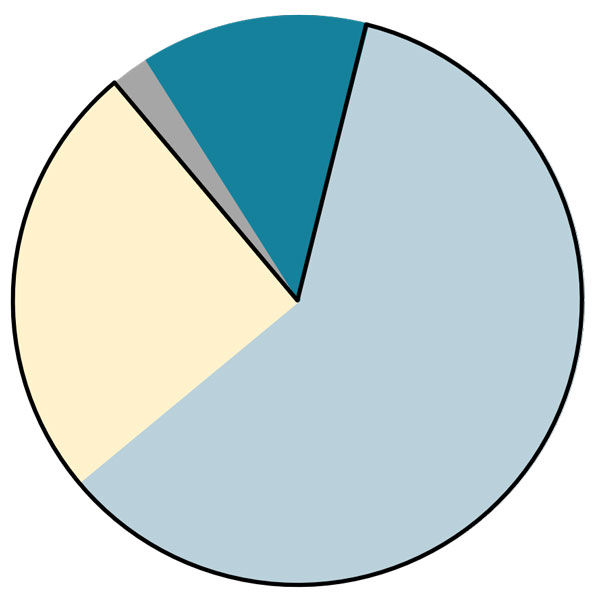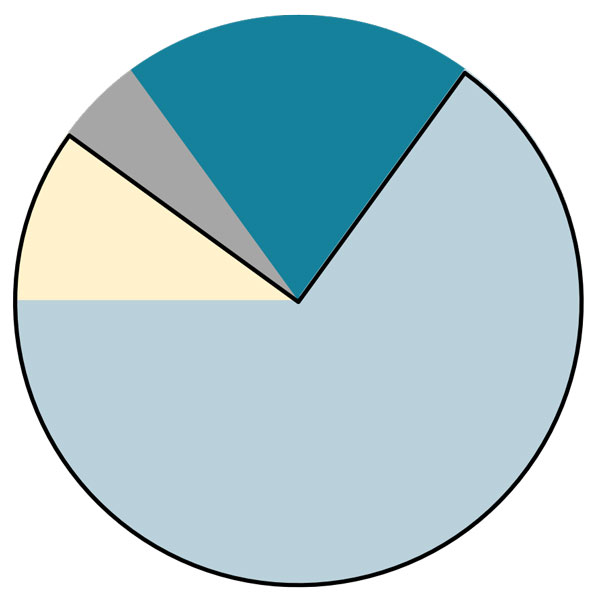How Systematic Investing Dynamically Adjusts Global Asset Allocations
If markets are in a “business as usual” mode, exposures in Blueprint Investment Partners strategies will look similar to other global investment portfolios.
But, when unique market conditions arise, the systematic investing process automatically adjusts asset allocations.
An All-Weather Portfolio
Here’s what this dynamic process can look like during four common market environments:





Usual Market: Stocks Rising & Volatility Low
Looks like a traditional growth model, with heavy exposure to global equities

Inflationary/Rising Rate Environment
Greater emphasis on inflation hedges and alternatives

Equities Falling & Volatility Increasing
Significant exposure to domestic and international Treasury bonds, as well as alternatives

Equities & Bonds Falling
Focused in short-duration fixed income and cash equivalent instruments, as well as alternatives
This adaptive approach helps financial advisors manage risk regardless of the market environment.
5 Primary Attributes Blueprint Portfolios
Global Asset Allocation
Portfolio diversification across eight major global asset classes in a single investment vehicle
Rules-Based Process Optimized for Behavioral Finance
Systematic investing process answers questions about what, when, and how much to buy and sell – repeatable rules that can help maintain discipline during prolonged market volatility by leaving no room for emotional decision-making amidst euphoria or fear
Dynamic Adjustments in Response to Market Changes
Asset allocation naturally adapts to market conditions – portfolio can look quite different depending on the environment (e.g., when there are uptrends/downtrends in an asset class, interest rates change, volatility arises, or inflation/deflation occurs)
Focus on Managing Downside Risk
Constructed to manage risk during bear markets and severe drawdowns (like 2022 and the Coronacrash of March 2020), but doesn’t need to go completely “risk off” amidst less significant pullbacks (especially those that affect only select asset classes, not the whole financial system)
Ongoing Tax-Loss Harvesting
Tax-friendly portfolio is possible by using a blend of timeframes – this time diversification allows losing positions to be sold quickly, but gains can be held as long as uptrends persist
Monthly Asset Allocation Update
Summary of current positioning
Let's Talk
If you’d like to learn more about our risk-managed, global asset allocation strategies
